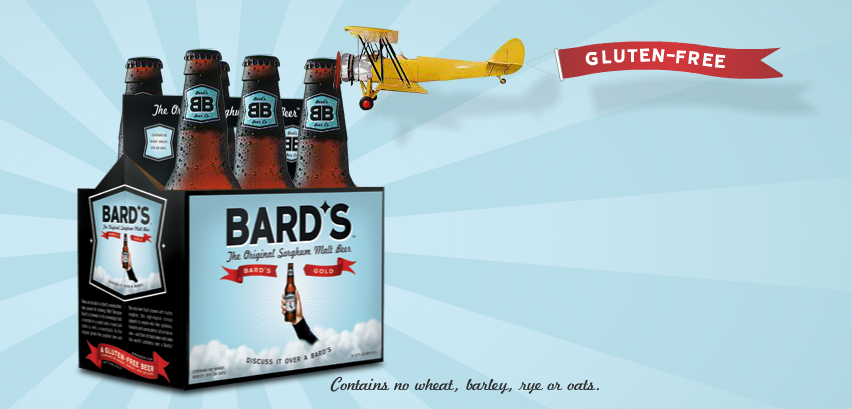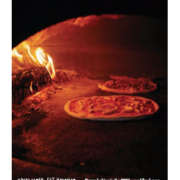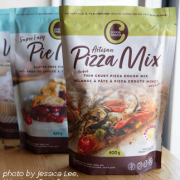Gluten-Removed, Gluten-Reduced Beer. Safe for Celiacs?


Lori Welstead, RD, MS
The topic of gluten-removed or gluten-reduced beer (GRB) is on the minds of many celiac patients and is the subject of numerous online posts and blogs. Is gluten-removed or gluten-reduced beer safe for people with celiac disease?
- Gluten-Removed and Gluten-Reduced Beer by Lori Welstead, RD, MS excerpted from Impact, Celiac Disease Newsletter, 2016, Issue 03
- Subscribe to Impact Newsletter
- Regular beer is derived from wheat, barley or rye.
- Can beer be made gluten free with an alternative grain? Yes, made from a gluten-free source, beer can in fact be gluten-free.
- Gluten-removed or gluten-reduced beer is another matter, however.
“The jury is still out, but at the moment we cannot say that GRB is safe for people with celiac disease.”
- Gluten-free beer is derived from grains other than wheat, barley or rye, so it can be gluten-free. GRB beer, however, contains malt, which is derived from a gluten-containing grain, barley.
- [In the United States] Gluten-free beer is regulated by the Food and Drug Administration (FDA). GRB, like all malt beverages, is regulated by the Alcohol and Tobacco Tax and Trade Bureau (TTB).
- The gluten-free standard of 20 ppm set by the FDA does not apply to the TTB. More importantly, there is currently no technology available to adequately assess the gluten content in a GRB.
- [In the United States] Conventional ELISA testing, used to test gluten quantities in food is not useful in testing GRB: The process used to “remove” gluten from beer, hydrolysis, breaks apart the proteins that would normally be detected by ELISA technology into smaller fragments that evade detection.
- [In the United States] Any beverage that initially contains barley cannot be labeled as gluten free. In these cases, beers that have been manufactured to remove gluten may state: “Processed to remove gluten”, as long as the following statement is also included on the product label or in advertising: “Product fermented from grains containing gluten and processed to remove gluten. The gluten content of this product cannot be verified, and this product may contain gluten.” 1 Tricia Thompson, RD, of The Gluten-Free Watchdog, has published more detailed information about the processes behind creating GRB.2
“Many patients claim to tolerate GRB well. It is important to remember, however, that lack of symptoms does not indicate that celiac disease is not active.”
- We know that celiac disease becomes active, regardless of symptoms, when as little as 100 mg of gluten is ingested over the course of a day. This is the equivalent of 1/64 of a teaspoon of flour.
- Research has shown that as little as 10 mg of gluten can activate the disease in some people.
- In either case, a very small amount (10-100 mg) is necessary to make celiac disease active and to put someone with it at risk for serious complications.
- It is important to keep in mind that while some patients have no symptoms, gastrointestinal or otherwise, and do not know if they have inadvertently ingested gluten, others are exquisitely sensitive to ingestion, resulting in extreme symptoms of diarrhea, abdominal pain, cramping, gas, bloating or even vomiting.
- In any case, repeated ingestion of gluten above the safe threshold of 20 ppm causes damage in the small intestine.
The University of Chicago Celiac Disease Center has been working with The Gluten Intolerance Group to improve the ability to accurately test these products, and the results of our research will soon be available. At this time, however, it is still impossible to know exactly how much gluten remains in GRB.
“Therefore, The University of Chicago Celiac Disease Center currently does not advocate consuming these products.”
- 1 Department of the Treasury, Alcohol and Tobacco Tax and Trade Bureau, TTB Ruling Number: 2012-2 May 24, 2012. Interim Policy on Gluten Content Statements in the Labeling and Advertising of Wines, Distilled Spirits, and Malt Beverages
- 2Is Barley-Based “Gluten-Removed” Beer Safe for People with Celiac Disease? Special Report by Tricia Thompson, MS, RD of Gluten Free Watchdog www.glutenfreewatchdog.org
 The University of Chicago Celiac Disease Center is entirely funded by private donations. Help Fund the Cure!
The University of Chicago Celiac Disease Center is entirely funded by private donations. Help Fund the Cure!
“The University of Chicago Celiac Disease Center is dedicated to finding a cure for celiac disease. As we focus on research toward a cure, we also strive to raise awareness and diagnosis rates through education and advocacy.”
“Our work is entirely funded by private donations. Until we are able to raise enough funds for an endowment, growing and sustaining our research and much-needed programs and services require us to raise new funds each year.”
Donating is quick and easy DONATE NOW
Made from sorghum, yeast, hops and water—contains no wheat, barley, rye or oats and is naturally gluten-free. Learn more …














